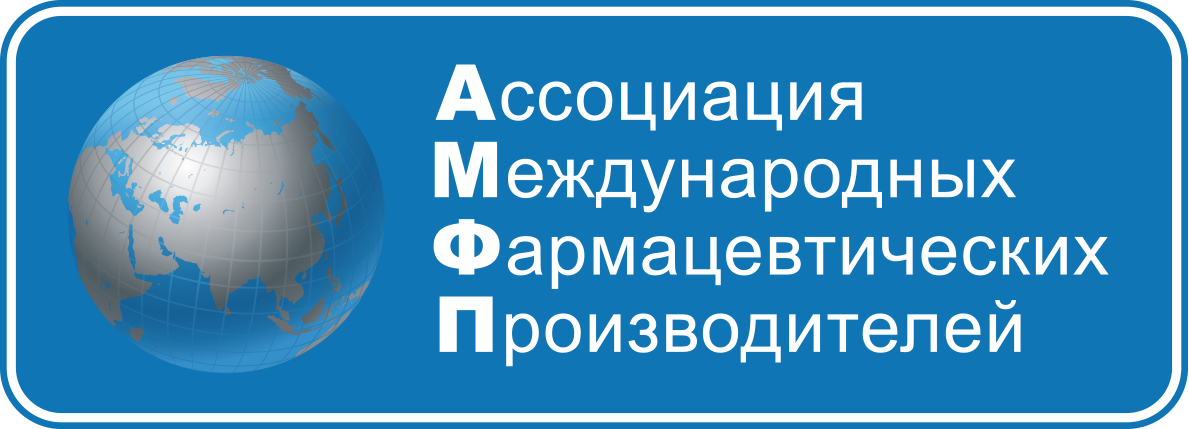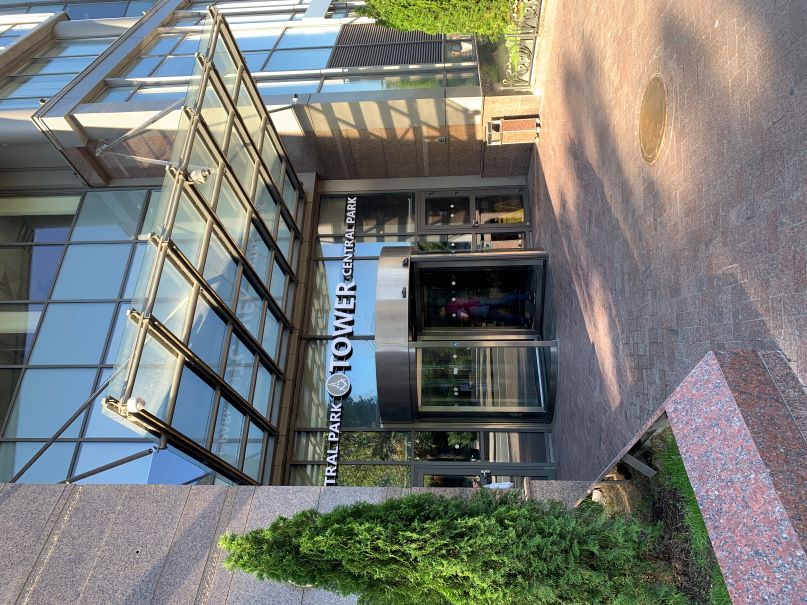Opportunities, challenges and key enforcement issues in creation the common markets of medicines in EAEU and EU were discussed on the conference organized by AIPM,EFPIA, DIA in Moscow on October 22, 2019
29.10.2019Representatives of the EEC and regulatory authorities of EAEU member-states, industry associations and the sector in cooperation with the leading international experts discussed the prospects, key challenges and law enforcement issues in creation of the common market of medicines in the EAEU and EU.
The conference was organized by AIPM, EFPIA, and DIA with participation of the Eurasian Economic Commission.
On October 29, 2019 the International regulatory conference "Harmonization of regulatory requirements in creation of a common market of medicines – the EAEU and EU experience. Opportunities, challenges, enforcement practices" was held in Moscow. The event provided the market experts of the EAEU member-states with a unique opportunity to discuss the current status of the regulatory system development within the EAEU and the EU countries, the advantages of regulatory convergence and ongoing dialogue between regulatory bodies and the industry for the development of harmonized regulatory approaches at the supranational level.
The forum was organized by the Association of International Pharmaceutical Manufacturers (AIPM), the European Federation of Pharmaceutical Industries and Associations (EFPIA) with the support of the Eurasian Economic Commission (EEC) and the global association of healthcare professionals in the field of drug regulation Drug Information Association (DIA), which for the first time took part in the event for the EAEU countries.
The conference brought together over 200 pharmaceutical professionals, including representatives of authorized regulatory bodies and expert organizations of the EAEU member-states, the Eurasian Economic Commission, leading professional associations and pharmaceutical companies. Strong interest to the conference was confirmed by over 30 representatives of the regulatory authorities from different countries contributed to the forum’s agenda.
The speakers at the forum included representatives of the Ministries of Health of the Russian Federation, Republic of Belarus, Kyrgyz Republic, specialized expert organizations from Russia, Kazakhstan, Armenia, the Ministry of Industry and Trade of the Russian Federation, Eurasian Economic Commission, industry associations and business, as well as the world's leading experts in the regulation of drug circulation, such as: Dr. Petra Dörr, who possesses extensive experience of working at the Swiss surveillance authority for medicines and medical devices (Swissmedic) and at the governing body of the International Council for Harmonisation of Technical Requirements for Pharmaceuticals for Human Use (ICH), Dr. Tomas Salmonson, who headed the Committee for Medicinal Products for Human Use of the European Medicines Agency (CHMP / EMA) for over 10 years.
The introduction of the Eurasian regulatory standards for the circulation of medicines requires a comprehensive professional interaction between the regulatory authorities of the EAEU member-states and the industry, based on mutual trust and ongoing cooperation, development and implementation of common regulatory and technical standards, application of new professional competencies.
The discussion which were centered around such fundamental matters as: promoting global regulatory convergence, harmonization of regulatory requirements under the ICH, regulatory and enforcement challenges in the creation of regional legislation, development and implementation of the eCTD dossier, rational resource use of regulatory authorities and industry, IT platform development for the successful operation of the common market, the “regulatory reliance” concept, the first experience of expert evaluation and registration of medicines as well as inspections of production facilities according to the EAEU requirements, etc. were acknowledged of wide interest to the audience.
Speaking at the opening of the conference, Vladimir Shipkov, Executive Director of AIPM, stressed that the forum heralded a new era in the relationship between the Eurasian regulatory authorities and their European colleagues, national regulatory authorities of the EAEU member-states and the pharmaceutical companies. "From the very start of creating the EAEU common market a fundamentally important decision was made to take the best global regulatory practices, developed and improved primarily within the International Council for Harmonization (ICH) and the European Medicines Agency (EMA), as the foundation for the Eurasian regulation. Now we can already confidently state that the EAEU laws, which we have all worked so hard on, are bringing the first practical results for the industry – the option of submitting an application for registration of medicines and GMP inspections of production facilities according to the common Eurasian requirements. In this regard, the opportunity to discuss the practical implementation of the best regulatory practices in different jurisdictions is a major contribution of international industry, which is difficult to overestimate."
Dr. Koen Berden, Executive Director of International Affairs, EFPIA, also remarked that the creation of common regulatory requirements within the EAEU fully coincides with global regulatory trends. "EFPIA is committed to global regulatory convergence. Processes of harmonization and regulatory convergence will bring benefits to every side. If we come together and start working together, the regulatory standards will grow and finally we improve access to innovative medicines for patients. All this represents a very important advantage for those countries which are included in this process. The Eurasian Union has made significant progress in terms of creating the common market of the medicines, and one of the most important conditions for further development is a fruitful dialogue, which should go on regular base between industry regulators and other participants at the regional and global levels."
Speaking at the plenary meeting, Dzhanyl Dzhusupova, Deputy Director of the Department of Technical Regulation and Standardization of the Eurasian Economic Commission, pointed out: "The Eurasian Economic Commission, together with all sides, has accomplished a colossal work. It is based on the three systems that ensure the smooth functioning of the common market and the availability of medicines for the population of the countries of the Eurasian Union. Firstly, it is the system of regulatory control that comprises 47 regulatory legal acts. Secondly, a unified codification system created for the first time at the regional level, comprising 34 reference guidelines and classifiers for medicines and medical devices, fully integrated in the international pharmacovigilance system. And thirdly, a common information system that comprises of registry of medicines and associated information databases. It allows conducting transparent trans-border reviews of dossiers for medicines and forms the foundation for mutual recognition of the quality, safety and efficacy study results." It is meaningful that for the first time public expert reports placed in the common information system of the Eurasian Economic Union became the basis for transparency of the registration process. From the reports, the medicine consumers – healthcare professionals, doctors and patients – can learn the evaluation results for a medicine, proof of its efficacy, and its safety grade given by the Ministries of Health of the member-states and expert entities.
Yuri Olefir, General Director, FSBI «Scientific Centre for Expert Evaluation of Medicinal Products» of the Ministry of Health of the Russian Federation, spoke about the work currently conducted in Russia on applications for medicine registration and for bringing the dossiers in compliance with the Eurasian Union rules, as well as about developing functions of the e-dossier submission information systems. He noted the need for active systematic submission of documents by applicants to bring them in line with the Union's requirements so that all procedures could be completed in time by the end of the transition period, which will expire on December 31, 2025. His announcement of the possibility of preliminary self-validation of the dossier in the applicants' electronic personal offices was met with applause from the audience. The Russian Federation is a leader in terms of number of submitted applications, and, according to Yury Olefir, the Ministry of Healthcare is expected to issue the first registration certificates under the requirements of the EAEU in the near future.
"For the first time at such a representative forum, the topic of "regulatory reliance", i.e. constructive cooperation between regulators of different countries, was touched upon, " - says Andrey Meshkovsky, associate Professor of the Department of organization of production and sale of medicines of the First Moscow State medical University named after I. M. Sechenova. - It seems that at present the need for such discussions is growing. As you know, the principles, rules and regulations of the common drug market of the EAEU are based on the experience of the European Union. Despite significant progress in establishing a regional control and authorization mechanism, there are some weak links in these chains. As an example, the term "normative documentation", used in the Russian Federation instead of the internationally accepted term "specification", was voiced. The presence of such barriers at the level of terminology in the EAEU documentation hinders the understanding and use of progressive international experience."
The representatives of the EEC and the authorized bodies of the EAEU member-states took an active part in discussing the practical results of the EAEU common medicines market creation achieved to-date, and also outlined the issues requiring additional attention that must be resolved for the successful market development at the next stages. The conference participants noted that the transfer of regulatory systems of the EAEU member-states to the common platform of the EAEU, as well as its integration into the modern global regulatory agenda, are crucial elements for the further development of the public health and drug provision in the member States of the Eurasian Union.
To continue the first day of the conference, on October 23, the DIA, with support by the AIPM and EFPIA, arranged a specialized workshops and a thematic session on the implementation of the electronic registration dossier format (eCTD) in different countries and the EAEU area, which were highly valued by participants.
For AIPM, which celebrates 25th Anniversary, the conference has become one of the most important international events dedicated to the landmark date.
Reference:
The Association of International Pharmaceutical Manufacturers (AIPM) was established in 1994 and represents in the Russian Federation the leading international pharmaceutical companies - producers and developers of modern effective, safe and high-quality medicines. Today, AIPM unites more than 60 international companies that provide over 80% of the world’s pharmaceutical products and over 60% of medicines imported to the Russian Federation.
For additional information, please contact:
Elena Yankovskaya, Communications Lead, AIPM
+7 (495) 933 70 40, E.Yankovskaya@aipm.org

